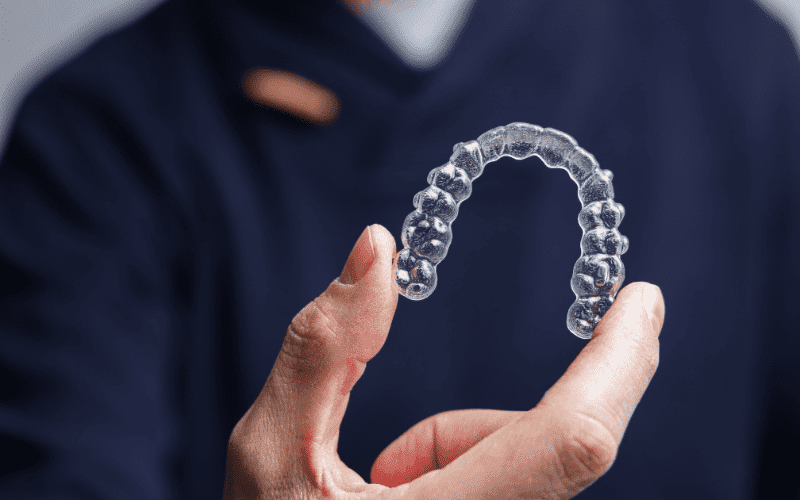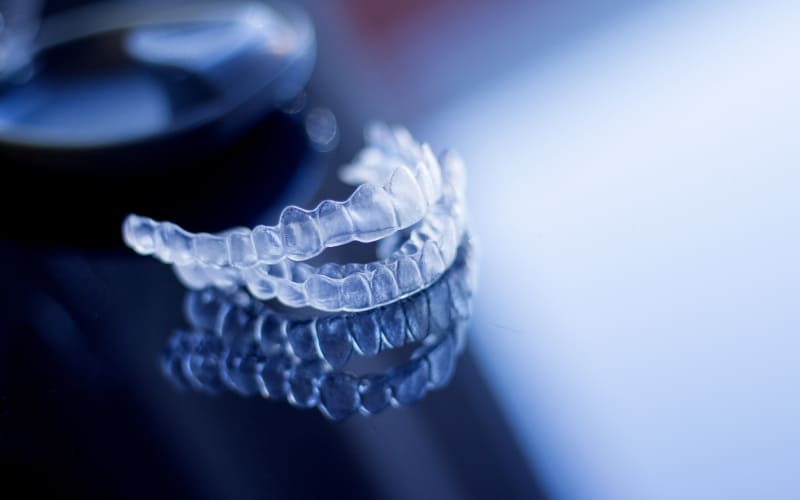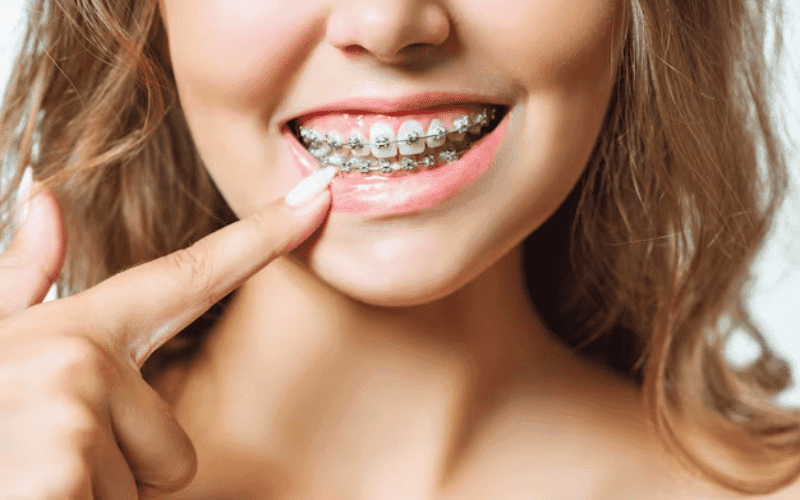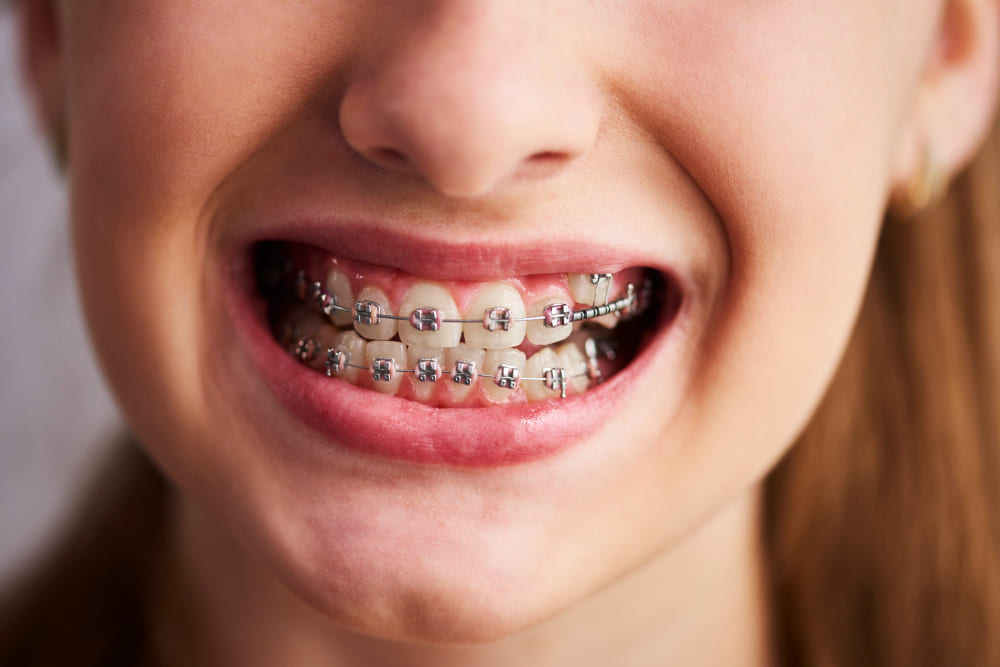Call: (810) 674-3060
Can You Sleep With Invisalign?

When embarking on the transforming journey of Invisalign, many people are curious about the problems it brings, and one popular question rings out throughout the night: “Can you sleep with Invisalign?” As the moonlight dances on these discrete aligners, we reveal the keys to a healthy coexistence between Invisalign and your dreams.
We explore the worlds of comfort and efficacy in this investigation, providing insights that promote a pleasant night’s sleep and add to the symphony of a wonderfully aligned grin. So, let’s explore the nighttime intricacies of orthodontic beauty and learn how to sleep well with Invisalign.
Understanding Invisalign Comfort:
Sleep with Invisalign aligners is a typical source of worry because of the risk of breaking the aligners or hindering therapy. Despite their ease of use during the day, Invisalign aligners are less noticeable than traditional metal braces and are smooth and flexible.
They do not employ wires or brackets that may cause cuts, and many patients are unaware they are wearing them. The aligners are made to fit securely over the teeth, reducing discomfort and assuring a pain-free experience.
Can You Sleep With Invisalign?
Sleep with Invisalign aligners is feasible, but standards must be followed for comfort and treatment success. Wear the aligners for 22 hours daily, letting them operate while you sleep, for the most outstanding results.
Over time, Invisalign strives to enhance tooth look and function by gently moving teeth into the ideal position. Wearing the aligners while sleeping guarantees that the therapy is effective. Here are some practical tips to make sleeping with Invisalign a breeze:
1. Establish A Routine:
Include Invisalign removal and cleaning in your evening routine. This helps to maintain dental hygiene by keeping aligners clean. This practice ensures both comfort and treatment efficacy while sleeping.
2. Maintain Consistent Wear Time:
Wearing the aligners for 20-22 hours daily is required for optimal Invisalign outcomes. Consistency is essential; stick to the recommended wear duration to maximize treatment efficacy. A systematic approach assures development toward your ideal smile.
3. Purchase Orthodontic Pillows:
Improve your sleeping experience using specialized orthodontic pillows that support additional head and neck. These pillows relieve pressure on sleep with Invisalign, resulting in a more comfortable and productive orthodontic journey.
4. Keep Clenching And Grinding In Mind:
Consult your orthodontist if you have concerns about nighttime teeth clenching or grinding. They may offer safeguards like a nightguard to preserve your Invisalign aligners. Addressing this issue guarantees that your orthodontic treatment continues uninterrupted.
5. Hydrate Before Going To Bed:
Drink water before going to bed to combat dryness. Adequate water keeps your mouth wet throughout the night, decreasing the pain associated with dryness when using Invisalign aligners. Sweet sleep and a well-hydrated grin are on the way!
What Is The Way I Should Put On Invisalign At Night?
Navigating the complexities of using Invisalign at night necessitates dexterity. Let’s figure out the best technique to put these aligners on before bed to ensure comfort and efficacy throughout the night.
1. Sleep With Your Head Elevated And Higher:
Because you are not used to having aligners in your mouth, you may suffer excessive drooling and salivation during the first few nights. This may eventually result in a dry mouth. To avoid this, raise your head and attempt to sleep gazing up.
Also, keep a glass of water beside your bed to help you stay hydrated.
2. Before And After Sleeping, Clean And Rinse Your Aligners As Follows:
Rinse your aligners with lukewarm water before bed to eliminate plaque and food particles. Remove and rinse them when you wake up. Clean them with a gentle toothbrush and water, avoiding hot water, which can distort and damage the aligners.
3. Avoid Chewing On Or Interact With Your Aligners While Sleeping:
Some individuals may unintentionally play with or chew on their aligners while sleeping. If you do these, talk to your dentist about changing the aligners.
What Are The Consequences Of Sleeping Without Invisalign?
Wearing Invisalign at night might have several negative impacts on your teeth. It can cause pain and discomfort as teeth return to their previous locations, delaying treatment progress. It might also lengthen treatment time since teeth may shift slower or more efficiently.
Please sleep with Invisalign at night consistently to ensure satisfactory outcomes since the treatment plan may not be completed within the specified timeframe. As a result, wearing aligners for 20-22 hours per day is critical.
As we end the chapter on sleeping with Invisalign, remember that the path to a straighter smile does not have to affect your regular sleep. Your dreams will be unaffected if you embrace regularity, consistency, and a conscious attitude to your orthodontic makeover.
Allow the symphony of properly aligned teeth to harmonize with the tranquility of your sleep. This isn’t just about straightening teeth; it’s about improving every aspect of life. So, when you engage on this journey, know that Invisalign is more than simply a treatment; it’s a silent partner in your pursuit of nighttime elegance and daytime brilliance. Good night, and stay smiling!
Also, Read our other article: Orthodontic Dentistry Myths Debunked With Actual Facts.




